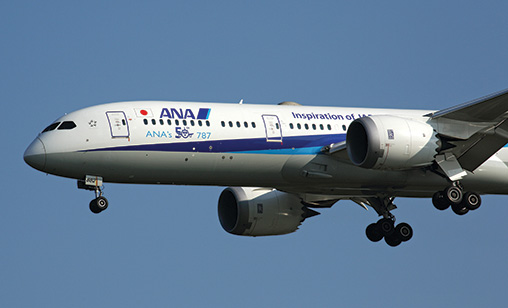Industry Addendum: Sustainability
All Nippon Airways (ANA) and Neste commit to enduring sustainable aviation fuel deal
November 1st 2020
Japan’s All Nippon Airways has strengthened action in reducing greenhouse gases from aviation with a new agreement to buy sustainable aviation fuel (SAF) from Neste, the world’s leading producer of both SAF and renewable diesel. Read More »
ANA said last month it had established a procurement supply chain with Neste and secured the support of Japanese trading giant, Itouchu Corporation, in the venture.
 |
The partnership will make ANA the first airline to fly with SAF out of Japan. The carrier is the first Asian airline to use Neste’s SAF. Operations with SAF flights began from Tokyo’s Haneda and Narita airports last month.
ANA executive vice president overseeing procurement, Yutaka Ito, said: “We are pleased to report, according to the International Sustainability and Carbon Certification, Neste My Sustainable Aviation fuel supplied in Tokyo provides approximately 90% greenhouse gas emission reduction through its life cycle and in its neat form compared with fossil jet fuels.”
Neste executive vice president for renewable aviation, Thorsten Lange, said the company recognized the major role SAF has to play in reducing greenhouse gas emissions, both in the short and long terms. “With this new collaboration, we are enabling the supply of [our] SAF for the first time in Asia,” he said.
The partners said last month they would enhance their collaboration after 2023, based on a multi-year agreement. Neste is expanding a facility in Singapore that will allow it to increase current annual production of 100,000 tons of SAF. With possible additional investment in its Rotterdam refinery, Neste said it could produce 1.5 million tons of SAF a year by 2023.
Neste, listed on Nasdaq Helsinki, refines waste, residues and innovative raw materials into renewable fuels and sustainable feed stocks. It also is introducing renewable and recycled raw materials such as waste plastics refinery materials.